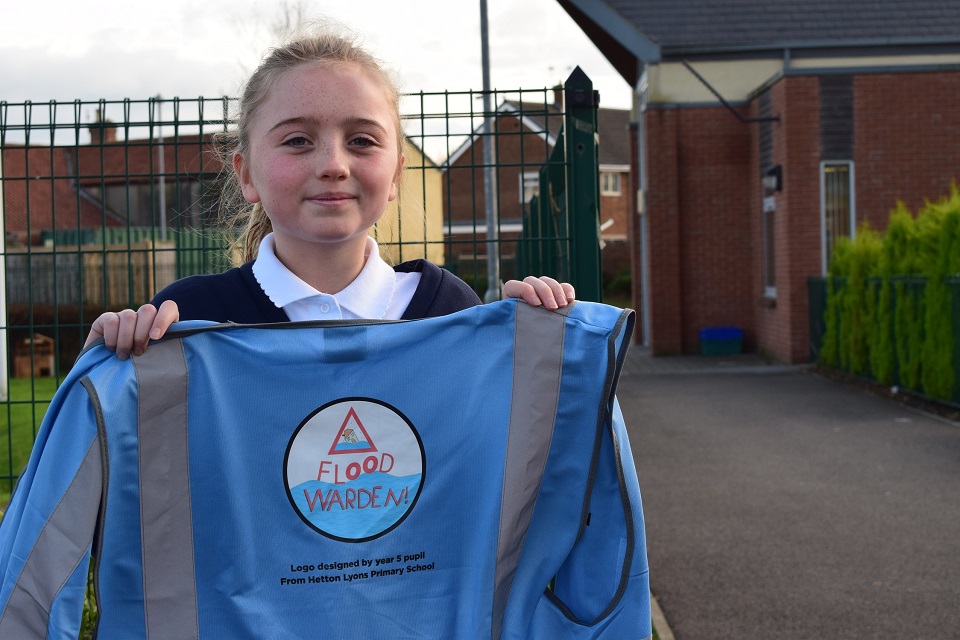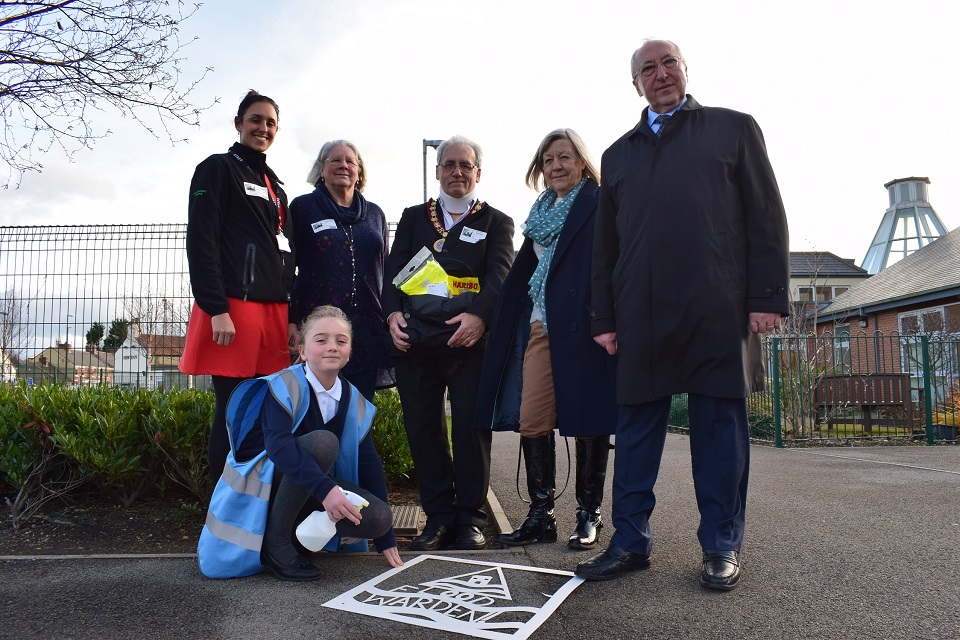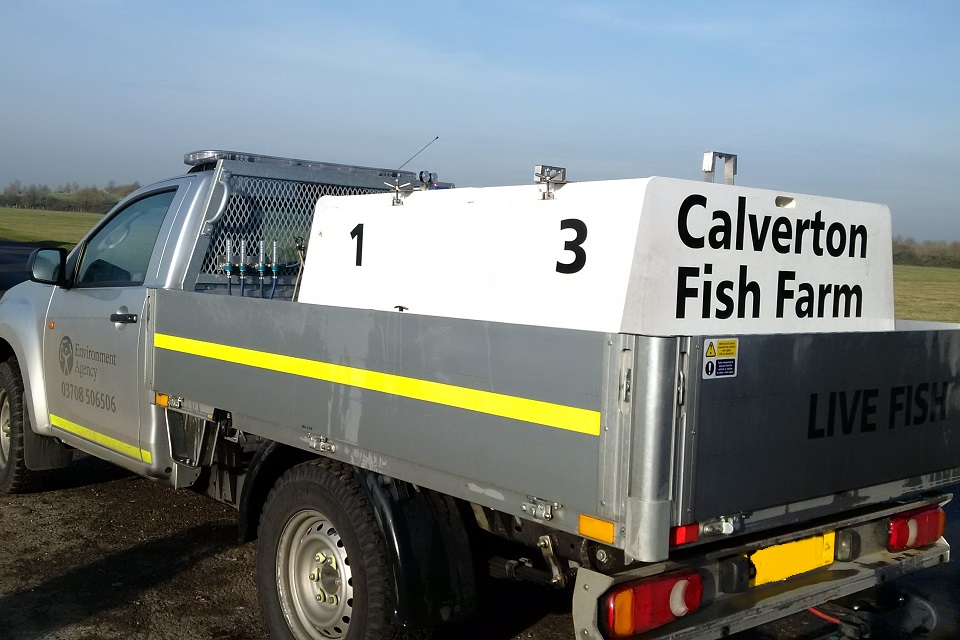Press release: North East youngster’s winning design for flood wardens
A Sunderland youngster flooded with creativity has designed a winning logo for the region’s Flood Wardens.
The Environment Agency hosted a special assembly at Hetton Lyons Primary School to present year 5 pupil Sally Lockey with a flood warden jacket.
Her design beat more than 300 submitted across the north east and will now be printed on all of the new blue flood warden jackets in the region.
And the new logo will also be printed on pavements outside north east schools with Rainworks spray – an invisible spray which will only show the logo when it rains.
It means pupils at the school will be reminded of the importance of being floodaware at key times.
Coun. James Blackburn, Hetton Town Mayor David Wallace, and flood wardens from Durham were at the special assembly to congratulate the youngster.

Important job for youngsters
Taryn Al-Mashgari, Flood Community Engagement Officer who covers the Tyne and Wear area, said:
The winning logo will be worn by flood wardens right across the north east so it was an important job for these youngsters.
We got more than 300 entries, which is fantastic, and it was tough for the judging panel. But the winning logo incorporated all of the aspects of a flood warden and that’s why we chose it.
We’re working closely with schools to make sure young people understand what it means to be flood resilient and how they can be prepared, so that communities are prepared for future generations.
We’ve talked to them about the importance of flood wardens and what they do and it’s been fun for the children to come up with this new design.

School presentations
Environment Agency Flood Engagement Officers gave presentations at schools across the north east during the competition to raise awareness of flooding with children and start them thinking about how to prepare for flooding.
Sarah Staward, Year 5 teacher at the school, added:
The children really enjoyed learning about flooding and the role and qualities of the Environment Agency flood wardens. The competition also supports our work as an eco-school.

Flood wardens are community volunteers who support their communities during flooding incidents – including activating a community’s flood action plan, ensuring the most vulnerable in their community are safe and working closely with the Environment Agency.
Flood warden Sue Williams, who congratulated Sally at the assembly, said:
These new flood warden jackets are excellent as the blue colour identifies us as flood wardens and distinguishes us from organisations at the scene. The winning symbol is fantastic and captures everything about our role.
Communities are urged to check their flood risk and find out how they can prepare for flooding
